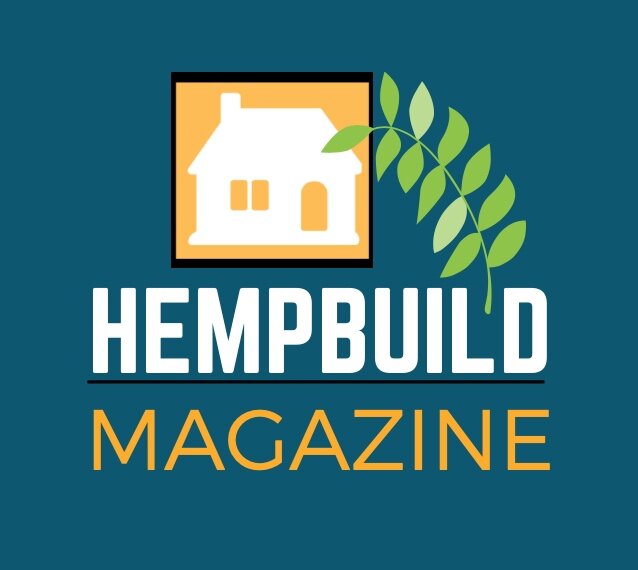U.S. Dept. of Energy Lab Studying Hemp Insulation
A two-year research project for the US Department of Energy will study HempWool, a hemp-fiber insulation batt. Photo courtesy of Hempitecture
By Jean Lotus
The US Department of Energy is supporting the extensive study of hemp-fiber insulation in a research and development program for entrepreneurs at the Tennessee-based Oak Ridge National Laboratory.
Tommy Gibbons, COO of Ketchum, Idaho-based Hempitecture, Inc. was awarded a two-year Innovation Crossroads fellowship through the DOE’s Advanced Manufacturing Office.
The grant program supports science-based startups to help advance “game-changing technologies from the laboratory to the marketplace,” according to the Innovation Crossroads website.
In January, the Biden Administration directed the Department of Energy to spearhead the United States policy by driving innovation and deployment of clean energy technology and decarbonization to address climate change.
Hemp -- a carbon-sequestering, fast-growing plant -- is now officially part of that campaign.
Subscribe for HempBuild Magazine’s free newsletter
"The Department of Energy is interested in the decarbonization potential of insulation and other building materials made from hemp fibers,” Gibbons told HempBuildMag in an email.
Gibbons and Hempitecture partner Mattie Mead distribute HempWool, a hemp fiber batt insulation product. The company also sells hemp hurd and binder for hempcrete insulation and conducts hemp-building contractor training workshops.
But it was HempWool that came to the DOE’s attention because it is non-toxic, high-performing and carbon-negative to manufacture. Hemp-based insulation releases zero carbon and can be sourced locally from U.S. grown hemp, Gibbons said.
At ORNL, Gibbons will be working on behalf of Hempitecture to determine the embodied carbon footprint of the HempWool product to “fully understand the carbon sequestration potential of our materials used at scale," Gibbons added.
The Tennessee Valley Authority also contributed to support Gibbons’s research because the project involved innovation in building energy efficiency research.
Insulation in any form can save thousands of dollars in energy costs and prevent heat loss in buildings. However, mineral wool insulation is one of the most polluting products used in home construction, according to the U.S. Environmental Protection Agency.
Mineral wool and fiberglass are manufactured by heating basalt and other rock material up to 1600 degrees C and spinning out long strands of molten fiber, releasing VOCs and other toxic gasses into the atmosphere.
In fact, mineral wool and fiberglass contribute more than 30 percent of the stratospheric ozone depletion, the worst environmental culprit, in the “pre-construction phase” of single-family homes, the EPA said.
Hemp-based insulation offers a sharp contrast, being grown with renewable plant material in 90 days. Hemp is also a carbon sink, sequestering about 5 metric tons of CO2 per acre through photosynthesis while growing.
$11 billion industry looking for environmentally friendly materials
Insulation for homes and commercial buildings represented a $11.13 billion market in the United States in 2019 and was expected to grow by about 3 percent by 2027, according to economic analysis firm Grandview Research.
Click here to go to our FREE online community.
But government regulations may tighten up to limit manufacturing of mineral wool and fiberglass and “propel the use of environmentally friendly raw materials,” the company predicted.
The Innovation Crossroads program helps companies move products from prototypes to the marketplace. But Hempitecutre already has a head start with a growing market for the company’s hemp-fiber insulation and hempcrete materials sales.
Hempitecture formerly imported the finished insulation from Quebec, Canada, but will now license and manufacture HempWool sourced from U.S.-grown hemp in their new Idaho facility, supported in part by state and local economic development grants and an online investment campaign.
HempWool insulation will be tested at the facility’s Maximum Building Energy Efficiency Research Laboratory (MAXLAB), where building envelopes are constructed and tested. Materials will undergo exposure to different climates using environmental chambers simulating weathering and aging over time, Gibbons said.
But even the federal government’s backing won’t hurry up ASTM product testing that could help hemp building materials enter the U.S. building codes, Gibbons said.
Even though ORNL will conduct ASTM-style testing, Hempitecture must still use independent testing to get an official certification for product technical datasheets accepted by building code departments, he added.
Meanwhile, a second R & D project for HempWool is taking place at University of Idaho, through a $200,000 grant from the Idaho Global Entrepreneurial Mission (IGEM). The project team will conduct insulation, fire resistance, and thermal conductivity tests, the company said.
“We look forward to commercializing our products and not just growing in Idaho, but THRIVING in Idaho," founder Mattie Mead said in a statement.
HempWool is the company’s main profit making product, and new research will help it compete with other forms of batt insulation by increasing the performance R value and fire resistance, Jonnie Pedersen, the company’s growth operations manager told HempBuild Mag.
“We’re on a roadmap to commercial feasibility, and HempWool isn’t our only product, but once we get our facility running we can start to develop other products from there,” she said.
Please Support Our Classified Advertisers
(To find out more about advertising CLICK HERE).
Training and Education
Publications
Hemp Hurd (shivs)/Hemp Fiber/ Hemp Microfiber
Hempcrete installers/Insulation subcontractors
Haven Earth PMA: Bio-Design and Conscious Project Management Consultancy
Hempknowlogy: Home of the Hempjet: America’s first hempcrete spraying system. Manchaca, TX
Lime Binder
Hemp Batt Insulation/Supplies
Green Builders
Hemp Building Engineers
Hemp Genetics
Professional Associations
Evants


